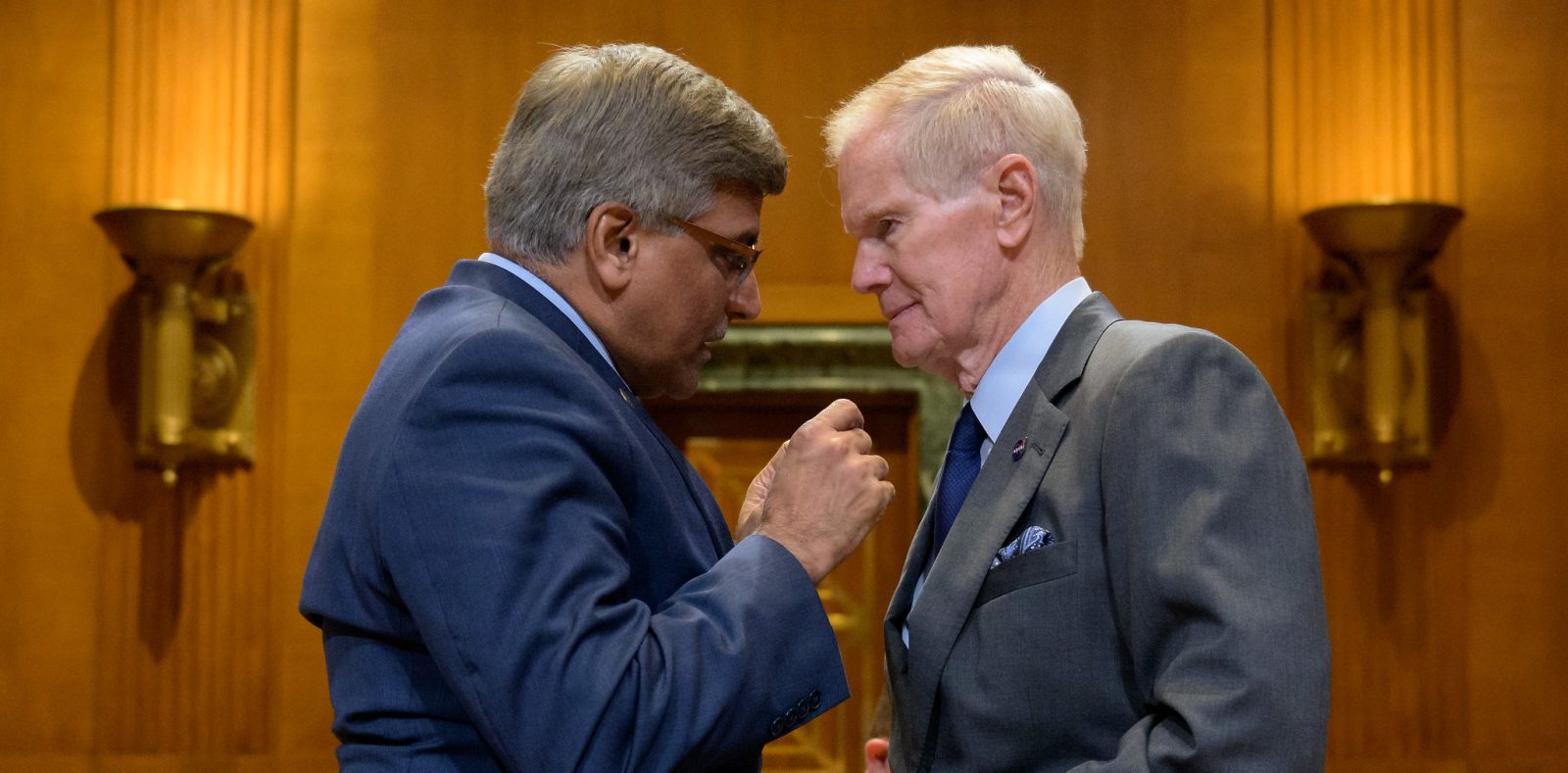
Since 2011, NASA has been barred from using any government funds (which, as a government-funded agency, is pretty much all of it) to cooperate with China. The agency’s Administrator agrees to continue this. So for an agency whose goal is to explore space and be as apolitical as possible, should they try to begin working with China?
If NASA can work with Russia, why not China?
Thanks to the cooperation between NASA, Russia’s space agency Roscosmos, and other international partners, humanity has had a continuous presence in low Earth orbit for over 20 years. While here on Earth, relations between Russia and pretty much everyone have deteriorated. The strong relationship between the two in space hasn’t seemed to have fractioned operationally yet.
So why not China? If we can still get along so well with Russia, why can’t we with China? Well, there are two reasons, one is a sort of “Red Scare 2.0,” and the second (because of the first one) is legally NASA can’t.
The Wolf Amendment was signed into law in 2011 and barred NASA from using funds to collaborate with China on any programs. This is why China cannot participate in programs like the International Space Station or Artemis. The Wolf Amendment has been added yearly to each new NASA appropriations bill since, and we don’t expect that to change.

NASA Administrator Bill Nelson agreed that the amendment should remain and is adequate for what is needed. “I think the Wolf Amendment, as it’s written, is adequate,” Nelson said during an appropriations hearing, “I think the Wolf Amendment is sufficient for where it is right now.”
While some instances allow NASA to break the amendment, Nelson gave an example of coordinating orbits on Mars for China’s Tianwen-1 orbiter, that requires security reviews and congressional notification.
For an agency that has worked so hard to bring international cooperation with its programs, China will always be pushed to the outside as long as the Wolf Amendment remains.
Join our Discord Server: Join the community with forums and chatrooms about space!
But is that a bad thing?
China has always been secretive, especially regarding its space program and other space-based capabilities. Also, the line between its civil and military space programs is much fuzzier than in the United States. So there has always been concern that any collaboration with China’s civil space program will be shared with the military.
I guess it’s time to talk about the elephant in the room. Right now, China is the United States’ primary adversary on the world stage. Russia’s invasion of Ukraine has shown that it’s not as formidable as we once thought. But, most importantly, China and the US are where the world goes to do business, especially in tech, and China holds the tech manufacturing market with a firm grasp.
So right now, just like in the 1950s and 60s between the US and the Soviet Union, there will be tension with any sort of cooperation between the two. Whether you agree or not, there is a relatively clear Space Race between the two countries. While we aren’t directly competing, China wants to show its strength, and the US wants to remain the top dog in space.
It might seem silly, but if there is anything governments take very seriously, it’s the nation’s secrets. Maybe we’ll have a China-US version of the Apollo-Soyuz test project sometime in the 2030s. But for right now, the two are locked in this sudo-battle for space dominance.
FTC: We use income earning auto affiliate links. More.

Comments